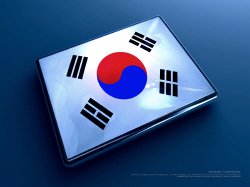Road to being smart: an old story
There was Joseon Dinasty (a.k.a Chosun Dinasty) on the Korean peninsula for 512 years (1392-1910). It was a father-to-son monarchy, and its governing philosophy was Confucianism.
Based on that 'ism', there was a way to rate jobs. 'Sa-nong-gong-sang' is the term in Korean.
FIrst, 'sa' looks almost like 'white-collar workers'. They had to pass a national exam applying for a government officer. The exam was to test how deeply the applicants understand Confucianism. The exam takers made a poem as well as an essay about the subject. Students had to prepare the exam for 10 years on average--some genii used to shorten it, though.
'Nong' means agriculture. As it was before the industrial revolution, they knew how farming is important. So, they said 'Nong-ja-cheon-ha-ji-dae-bon', Farmers form the basis of all. However, farmers were still lower than 'white-collars'.
'Gong' says about industry. Craft workers were relatively considered less important. They had to show appropriate manners when meeting with, talking to the 'sa'.
'Sang' at the bottom is to merchants. Workers in commercial areas were considered low-born. They were often called as 'things' that it was normally natural for them to be treated bad.
Then, the order of status was 'office workers-farmers-craft workers-merchants'.
I'm not talking about 'discrimination' but giving you a background to understand what 'being smart' is like in Korea. Let me go on a bit later.


No comments:
Post a Comment